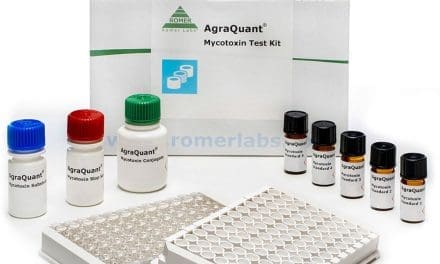DENMARK – Officials in Denmark are investigating a deadly outbreak of Shiga toxin-producing E. coli (STEC) O157 that began in December 2021 affecting more than a dozen people.
Since early December, 13 patients have been detected and samples from nine of those sick are closely related after an analysis by whole genome sequencing at the Statens Serum Institut, a Danish sector research institute. This means they were likely infected by a common source.
Nine people have been hospitalized and an elderly patient has died. Among those sick are three children that have developed hemolytic uremic syndrome (HUS), a potentially fatal complication of E. coli infection.
Four men and nine women between the ages of 2 and 90 with a median age of 41 are ill. They live in all parts of the country, except the Nordjylland region. The affected individuals have not been traveling or attending joint events in the time leading up to their illness.
The first confirmed infection was recorded on Dec. 3, 2021, and the latest possible case was reported on Jan. 4, 2022.
“It is a serious outbreak as this type of Shiga toxin-producing E. coli can, in some cases, cause acute renal failure. We are paying particular attention as three children with acute renal failure were reported here in December. Patients with severe diarrhea, especially bloody diarrhea, should seek medical attention to get a correct diagnosis,” said Luise Müller, an epidemiologist from SSI.
As the source of the outbreak is yet to be identified, Luise advised consumers to properly cook minced meat and thoroughly rinse fruit and vegetables prior to consumption.
He noted that it is also important to separate raw meat from ready-to-eat food, such as salad, which is not heat-treated before eating.
Officials with SSI, the Danish Veterinary and Food Administration (Fødevarestyrelsen) and DTU Food Institute are trying to find the source of the infections. Interviews are ongoing with patients or their relatives to get information on consumed food, animal contact and other possible exposures.
Danish officials have informed the European Centre for Disease Prevention and Control (ECDC) and other countries via the EpiPulse network to see if related infections have been reported elsewhere, as reported by Food Safety News.
In 2021, Denmark experienced another E.coli outbreak linked to onions from Egypt via a Dutch supplier. From late November to mid-December 2021, 68 infections were registered and 20 people needed hospital treatment.
Enteroinvasive E. coli (EIEC) was isolated from more than 20 patients and the remaining were PCR positive for a gene specific to Shigella species and EIEC. The probable source of infection was spring onions used in ready-to-eat salads sold in different retail chains.
E.coli infections
Escherichia coli (E. coli) are mostly harmless bacteria that live in the intestines of people and animals and contribute to intestinal health.
The symptoms of E. coli infections vary for each person but often include severe stomach cramps and diarrhea, which is often bloody. Some patients may also have a fever. Most patients recover within five to seven days.
Others can develop severe or life-threatening symptoms and complications, according to the Centers for Disease Control and Prevention (CDC).
About 5 to 10 percent of those diagnosed with E. coli infections develop a potentially life-threatening kidney failure complication, known as a hemolytic uremic syndrome (HUS).
Symptoms of HUS include fever, abdominal pain, feeling very tired, decreased frequency of urination, small unexplained bruises or bleeding, and pallor.
Many people with HUS recover within a few weeks, but some suffer permanent injuries or death. This condition can occur among people of any age but is most common in children younger than five years old because of their immature immune systems, older adults because of deteriorating immune systems, and people with compromised immune systems such as cancer patients.
Anyone who has developed symptoms of E. coli infection is advised to seek medical attention and tell their doctor about their possible exposure to the bacteria. As the infection can mimic other illnesses, specific tests are required to diagnose it.
Liked this article? Subscribe to Food Safety Africa News, our regular email newsletters with the latest news insights from Africa and the World’s food safety, quality and compliance. SUBSCRIBE HERE








